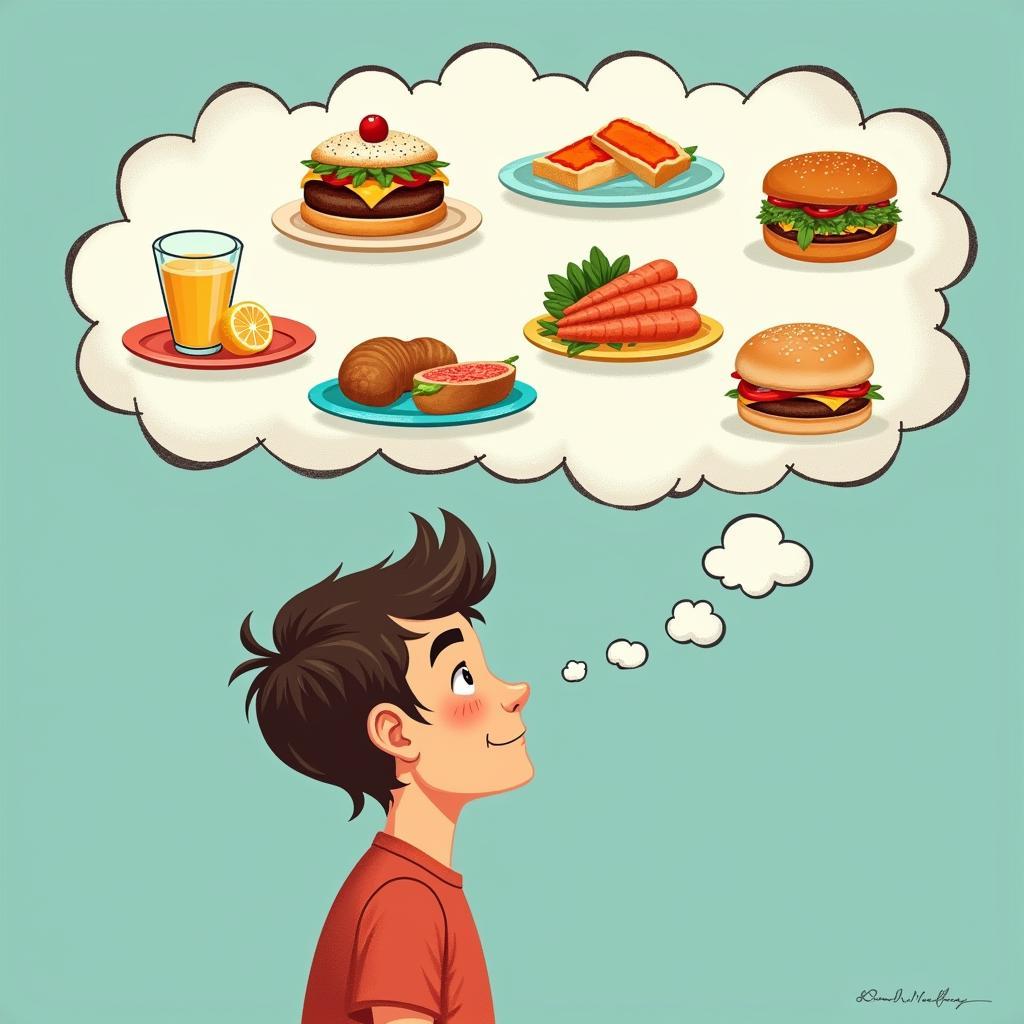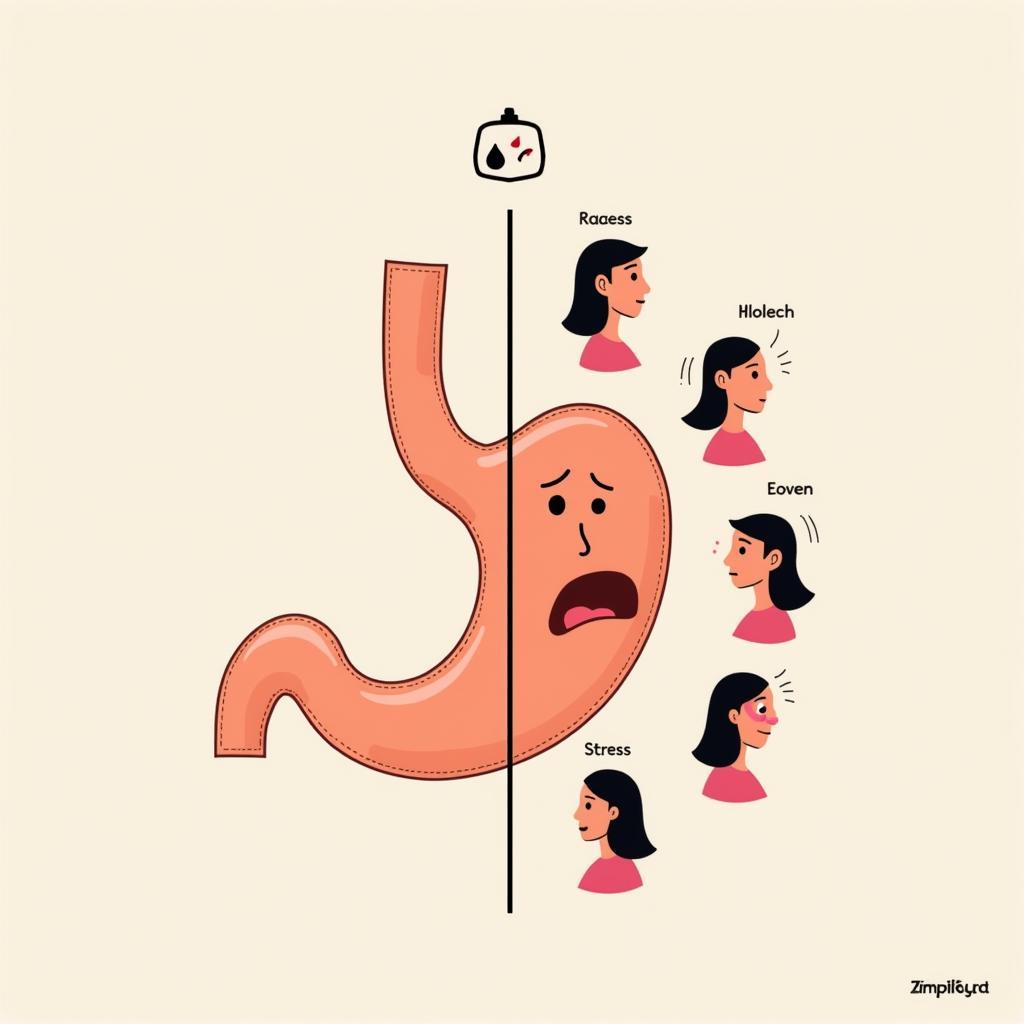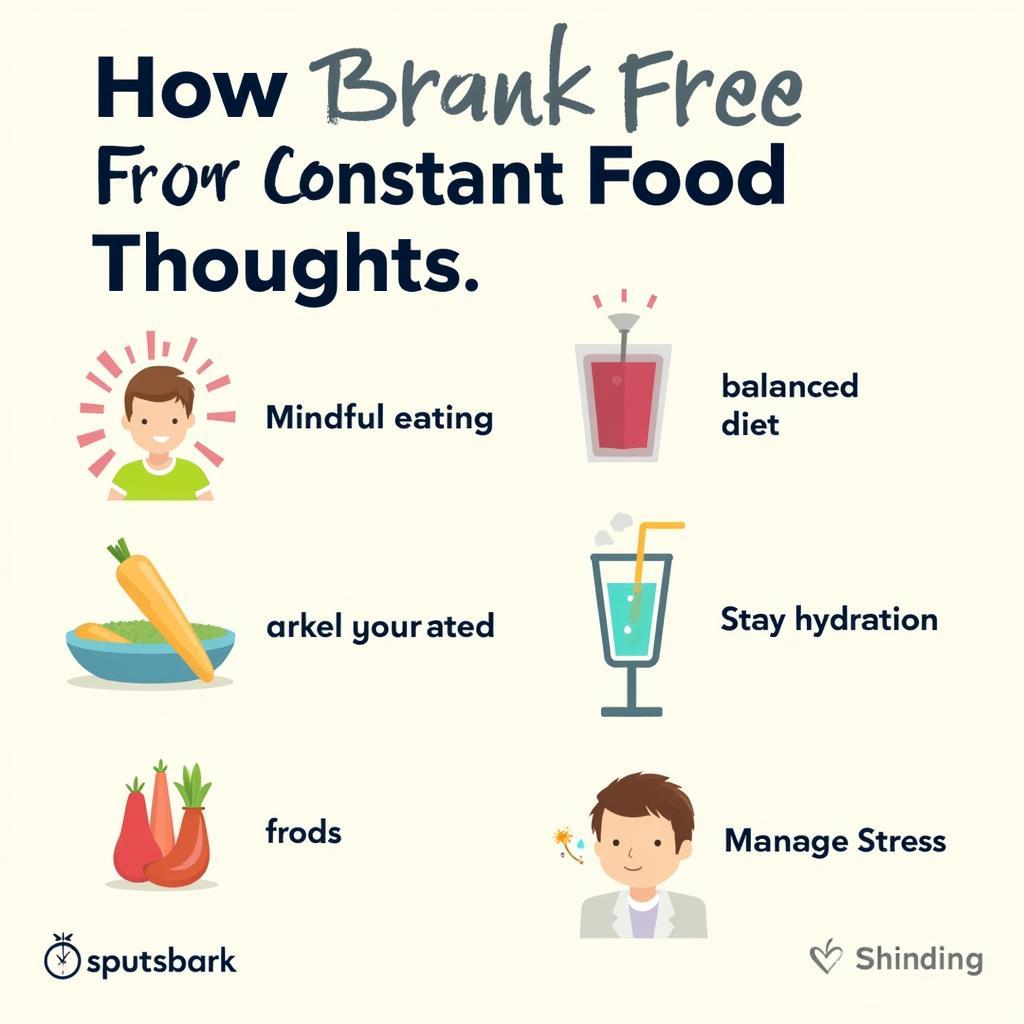We’ve all been there: stomach rumbling, mind racing through images of juicy burgers, creamy pasta, or that decadent chocolate cake you had last week. But why can’t I stop thinking about food, you ask? It’s a question that plagues even the most disciplined eaters among us. While the occasional craving is perfectly normal, constantly thinking about food can sometimes signal something deeper than just a rumbling tummy.
 Person Constantly Thinking About Food
Person Constantly Thinking About Food
The Science Behind Food Fixation
Our brains are hardwired to seek out food. From an evolutionary standpoint, this ensured our survival in times of scarcity. When we eat, our brains release dopamine, a neurotransmitter associated with pleasure and reward. This creates a positive feedback loop: we eat, we feel good, we crave more.
Is it Hunger or Something Else?
Understanding the difference between physical hunger and emotional hunger is key. Physical hunger comes on gradually, accompanied by physical cues like a growling stomach. Emotional hunger, on the other hand, is often sudden and intense, triggered by emotions like stress, boredom, or sadness.
“Many people turn to food for comfort without realizing the root cause of their cravings,” says Dr. Anna Roberts, a registered dietician. “Identifying these triggers is the first step in understanding your relationship with food.”
 Difference Between Physical and Emotional Hunger
Difference Between Physical and Emotional Hunger
Why Can’t I Stop Thinking About Food Even After Eating?
You just finished a satisfying meal, yet the thought of food still lingers. Why? Several factors could be at play:
- Blood Sugar Fluctuations: Eating highly processed foods, especially those high in sugar, can lead to rapid spikes and crashes in blood sugar, leaving you feeling hungry again shortly after eating.
- Dehydration: Sometimes our brains misinterpret thirst for hunger. Staying adequately hydrated throughout the day is crucial.
- Lack of Sleep: When we’re sleep-deprived, our bodies produce more ghrelin, a hormone that stimulates appetite, and less leptin, a hormone that signals fullness.
Breaking Free From the Food Fog: Tips to Quiet Your Mind
Feeling overwhelmed by constant food thoughts? Don’t worry, there are strategies you can implement:
- Mindful Eating: Instead of mindlessly munching, slow down and savor each bite. Engage all your senses – taste, smell, texture, and sight – to fully experience your meal. This can help you feel more satisfied and prevent overeating.
- Balanced Diet: Focus on consuming a well-rounded diet rich in fruits, vegetables, lean proteins, and whole grains. This provides your body with the nutrients it needs, helping stabilize blood sugar levels and reduce cravings.
- Stay Hydrated: Keep a water bottle handy throughout the day and aim to sip consistently.
- Manage Stress: Engage in stress-reducing activities like yoga, meditation, or spending time in nature. Finding healthy coping mechanisms for stress can prevent emotional eating.
 Tips to Stop Thinking About Food
Tips to Stop Thinking About Food
When to Seek Professional Help
If you find that your thoughts about food are consuming your life and interfering with your daily activities, it’s essential to seek professional help. A therapist or registered dietitian can help you address any underlying emotional or psychological factors contributing to your relationship with food.
Don’t let the cycle of constant food thoughts control you. By understanding the reasons behind your cravings and implementing healthy habits, you can find a more balanced and peaceful relationship with food.
FAQs
1. Is it normal to think about food even when I’m not hungry?
Yes, occasional thoughts about food are normal. However, if these thoughts become persistent and intrusive, it might be a sign of an underlying issue.
2. Can certain medications cause food cravings?
Yes, some medications, such as steroids or antidepressants, can increase appetite and lead to food cravings.
3. Does boredom contribute to food cravings?
Absolutely. When we’re bored, our brains often seek stimulation, and food can provide a quick and easy source of dopamine.
4. What are some healthy snacks to have on hand to combat cravings?
Opt for snacks that combine protein, fiber, and healthy fats, such as Greek yogurt with berries, apple slices with peanut butter, or a handful of nuts.
5. I’ve tried everything, but I still can’t stop thinking about food. What should I do?
If you’re struggling to manage your food thoughts on your own, don’t hesitate to reach out to a healthcare professional for guidance and support.
Need Help Managing Your Food Thoughts?
We understand that food cravings and constant thoughts about food can be challenging. At Mina Cones Food, we are passionate about helping you develop a healthier relationship with food. Check out our article on i can’t stop thinking about food for more insights and strategies. If you need further assistance or have any questions, please don’t hesitate to contact us.
Call: 02437655121
Email: minacones@gmail.com
Visit: 3PGH+8R9, ĐT70A, thôn Trung, Bắc Từ Liêm, Hà Nội, Việt Nam.
Our dedicated customer support team is available 24/7 to assist you on your journey towards a healthier and happier relationship with food.